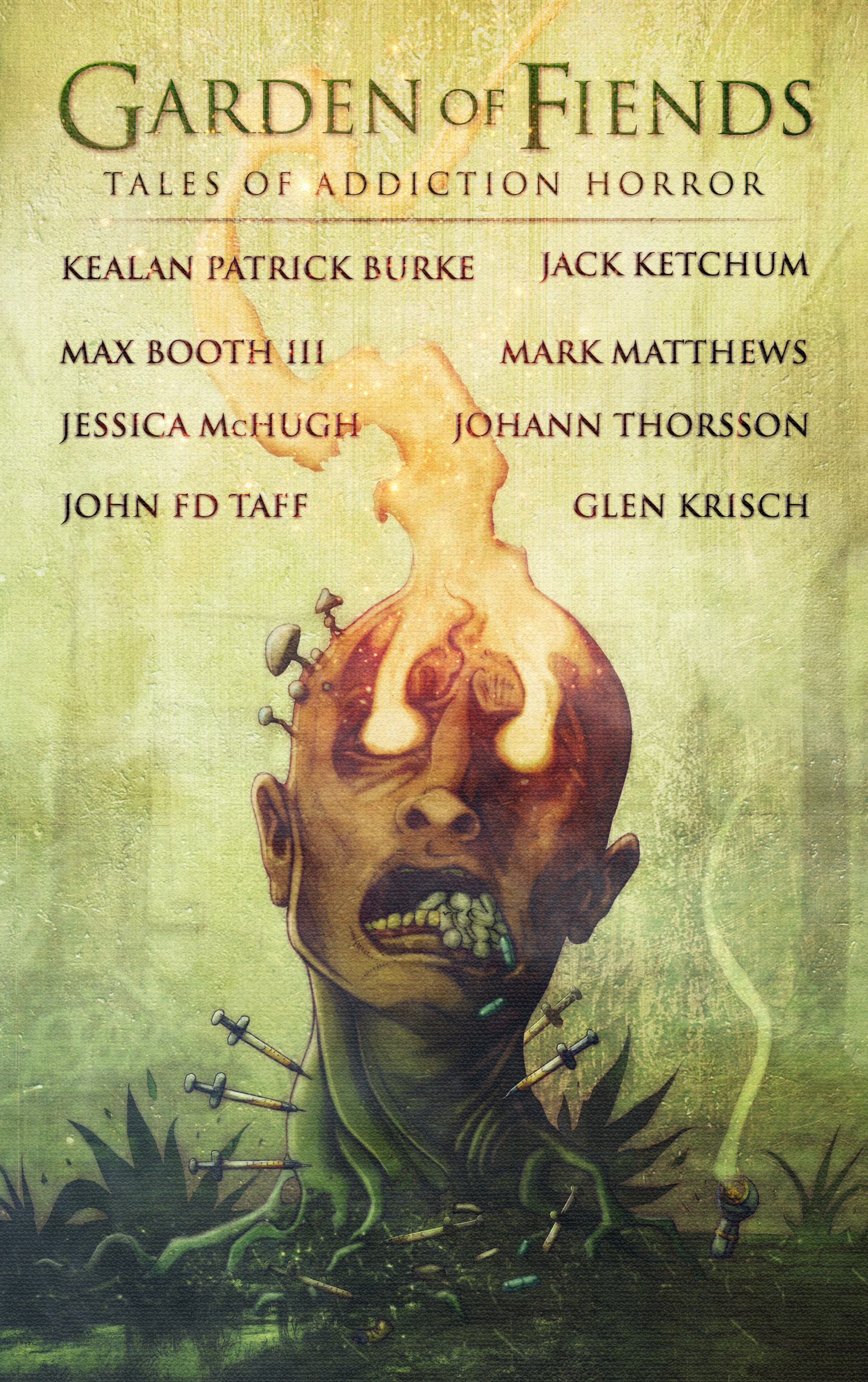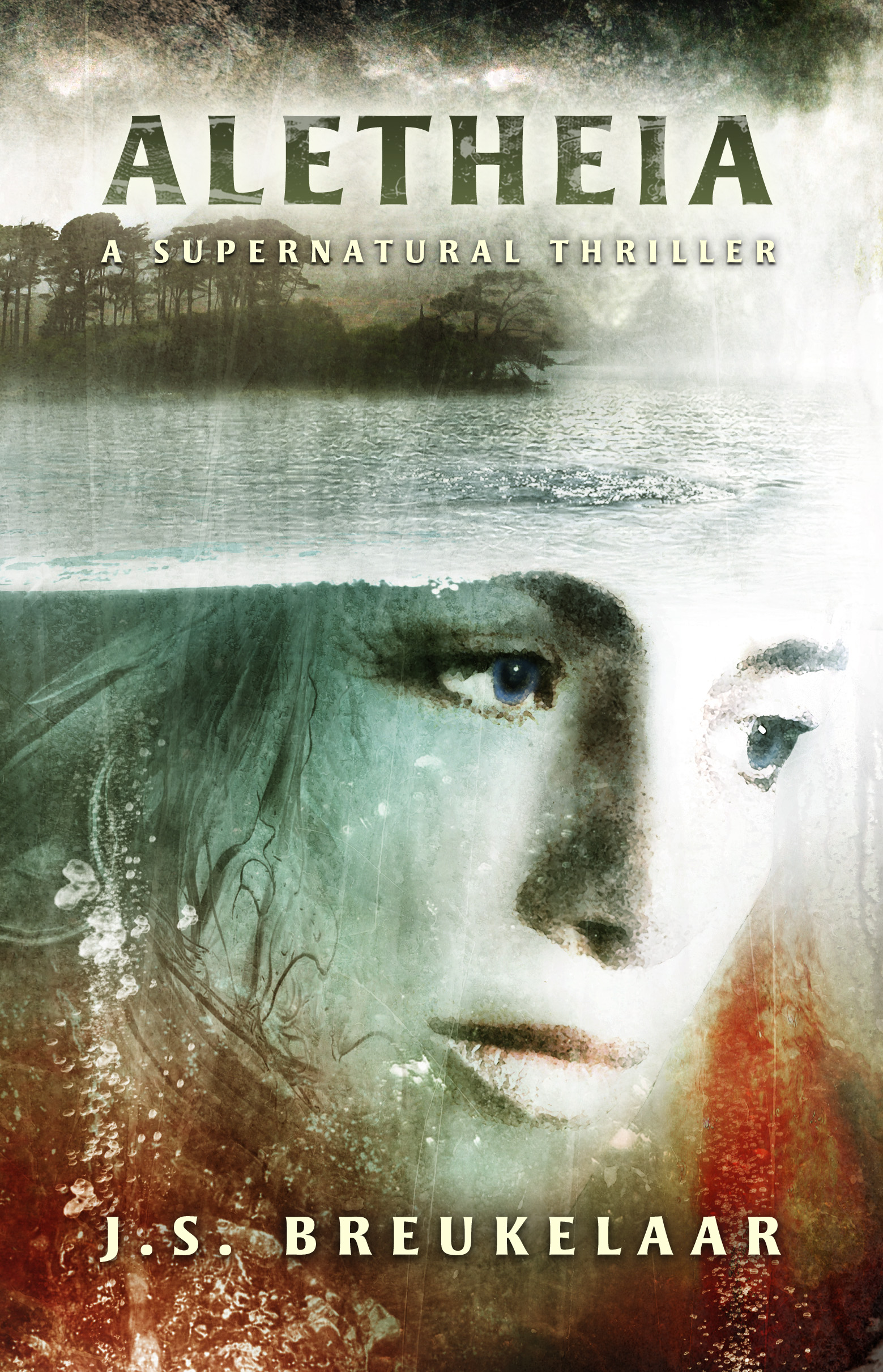This week on The Scariest Part, my guest is author and editor Mark Matthews, whose new anthology is Garden of Fiends. Here is the publisher’s description:
The intoxication from a pint of vodka, the electric buzz from snorting cocaine, the warm embrace from shooting heroin — drinking and drugging provides the height of human experience. It’s the promise of heaven on earth, but the hell that follows is a constant hunger, a cold emptiness. The craving to get high is a yearning as intense of any blood-thirsty monster.
The best way to tell the truths of addiction is through a story, and dark truths such as these need a piece of horror to do them justice.
The stories inside feature the insidious nature of addiction told with compassion yet searing honesty. Drug overdoses are now the leading cause of accidental deaths, and some of the most incredible names in horror fiction have tackled this modern day epidemic.
And now, let’s hear what the scariest part was for Mark Matthews:
In certain ways, the scariest part of Garden of Fiends: Tales of Addiction Horror is that it is a reflection of the modern day epidemic of opiate addiction. Certain dark truths of our world require a piece of horror to do them justice. Facts aren’t always felt, but stories are, and fiction makes the reader feel the true devastation of addiction. Such is the case with these stories, where some incredible names of horror have portrayed addiction in all its brutal honesty. Jessica McHugh, Glen Krisch, and Max Booth III (as well as my own tale) feature heroin and opiate addiction, while Kealan Patrick Burke, John FD Taff, and Jack Ketchum tackle the insatiable, unquenchable thirst that is alcoholism.
On a more personal level, the scariest part is that addiction will remain in my own subconscious no matter how many years it has been since my last use.
I’ve used every drug that appears in this anthology, and it nearly killed me, but I’ve been clean over 24 years, and, after going back to school to become a licensed professional counselor, have worked in the field of addiction treatment for much of that time. Working with other addicts has helped me keep my own sobriety, but dealing with the cravings that remain never stops. I still dream about drinking. I still feel a jolt of lightening in my spine when I watch someone snort cocaine or crystal meth in a movie. I’ve come to expect the cravings and learn to live with them, and when I write dark fiction, the culture and pathology of addiction pervades, and writing is incredibly therapeutic.
I am so thrilled at the list of writers who appear in Garden of Fiends to portray this affliction. This anthology is a way of bearing this burden to the world. Not just my burden, but the burden of sick and suffering humans everywhere. As you read this, someone just shot up for the first time, and soon their body will be aching for heroin the way a vampire thirsts for blood. Someone right now is buying a half pint of vodka with shaky hands at the liquor store, trembling with terror. A mother just identified their daughter’s overdosed body at the hospital. Another is writing their son’s obituary. Everyday we hear horror stories such as toddlers found in the back-seat of a car with overdosed parents in the front or a batch of fentanyl-laced heroin killing scores of people over a single weekend.
The scariest part is that what’s inside this anthology is a mirror of our world, not a teleporter to another.
Here’s a brief summary:
A Wicked Thirst — Kealan Patrick Burke
An alcoholic’s incessant thirst for drink has caused a trail of devastation in his path. A blackout one night puts him face to face with the specter of his past. A powerful opening punch and quite simply vintage Kealan Patrick Burke.
The One in the Middle — Jessica McHugh
“The best way to take atlys is to inject it straight into the testicles,” thus begins Jessica McHugh’s excerpt from The Green Kangaroos, which blew my freaking mind (cliché as that sounds). Captures the tone, lifestyle and craving for heroin in a wonderfully transgressive fashion. William Burroughs himself would be proud.
Garden of Fiends — Mark Matthews
The father of a heroin addict is tired of his daughter relapsing, so he takes drastic measures to protect her. He thinks he’s cut out her disease, but he’s only made it spread. Pretty soon, there are addicts all over the city of Detroit trying to get his daughter high.
First, Just Bite A Finger — Johann Thorsson
This flash fiction piece is a lightning shot across the page. An addict keeps convincing herself she can quit her bizarre addiction — “She could quit if she wanted to, and she did, and went until Thursday evening.”
Last Call — John FD Taff
Last Call is about the type of alcoholic I am quite familiar with — one who frequents AA meetings, can’t stay sober, and often shows up drunk. His sponsor offers him one last chance at sobriety by visiting the most unusual of places: a liquor store. A perfect illustration of the family legacy of alcoholism.
Everywhere You’ve Bled and Everywhere You Will — Max Booth III
Max Booth’s story is about a recovering heroin addict who relapses after a bizarre turn of events and an infatuated (and quite creepy) girlfriend. It includes a bleeding penis, spiders, a Walmart worker, and Max’s unmistakable wit. Your jaw will drop.
Torment of the Fallen — Glen Krisch
Scarecrows, rats, syringes, and heroin are the ingredients for this Glen Krisch story. When you see real demons, sometimes the demon of addiction is all that will hold them back.
Returns — Jack Ketchum
Ketchum didn’t write this short story to serve as the perfect ending to Garden of Fiends, but he might as well have. This is a sweet, somber story about a Ghost visiting his alcoholic ex-lover, watching her drink herself to death, and trying to find his purpose for this return to his old life. I’m so grateful to have another one of my writing heroes included in Garden of Fiends.
Mark Matthews: Website / Facebook / Twitter / Goodreads / Amazon Author Page
Garden of Fiends: Amazon / Barnes & Noble
Mark Matthews is a graduate of the University of Michigan and is a licensed professional counselor. He is the author of On the Lips of Children, Milk-Blood, and All Smoke Rises. He lives near Detroit with his wife and two daughters. Reach him at WickedRunPress@gmail.com.



